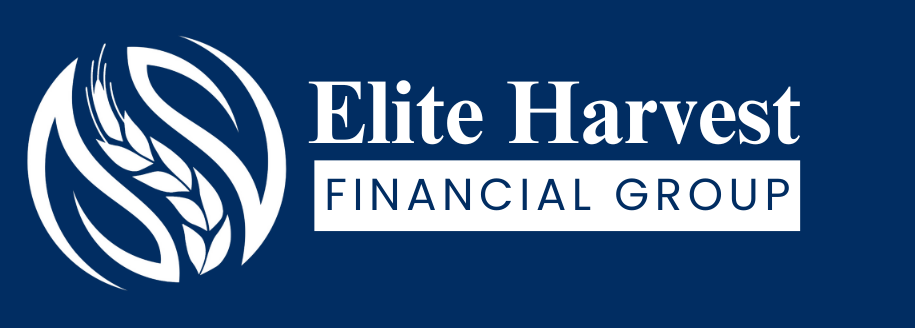When deciding between a mortgage broker vs bank in Whitby, your choice could potentially save or cost you thousands of dollars over your mortgage term. Facing this crucial financial decision can feel overwhelming, especially when both options seem to offer compelling benefits at first glance.
In fact, many Whitby homebuyers struggle to determine which path will truly lead to better rates and terms. Banks offer the familiarity and convenience of an established relationship, while mortgage brokers promise access to multiple lenders and potentially lower rates.
The difference in your monthly payments and overall interest costs can be significant depending on which route you take. While banks have their own mortgage products and standardized processes, brokers can shop around across 50+ lenders to find competitive options tailored to your specific situation.
As Whitby’s housing market continues to evolve heading into 2025, understanding the nuances between these two mortgage sources becomes even more important. This guide will break down the key differences, compare potential savings, and help you determine which option best aligns with your financial goals and circumstances.
Bank vs Mortgage Broker: What’s the Core Difference?
The fundamental distinction between choosing a bank or mortgage broker lies in how they approach the lending process. Understanding these core differences can significantly impact your mortgage experience in Whitby’s competitive housing market.
Lender Access: Single Institution vs Multiple Lenders
Banks operate as direct lenders, offering only their own mortgage products with terms and conditions set by their internal policies. Their mortgage specialists can only present what their specific institution offers, limiting your options to a single source.
Mortgage brokers, conversely, function as intermediaries with access to numerous lending sources. A typical broker maintains relationships with 30-50 different lenders, including major banks, credit unions, trust companies, and alternative lenders. This diversity creates a substantial advantage for borrowers seeking the most favourable terms. Additionally, brokers can access specialized lenders that don’t deal directly with the public, opening up options unavailable through traditional banking channels.
Product Variety: In-House vs Market-Wide Options
Banks typically feature a limited selection of mortgage products designed to meet their profitability goals. These standardized offerings may include fixed-rate, variable-rate, and sometimes specialty mortgages like HELOC (Home Equity Line of Credit). Nevertheless, regardless of how well these products align with your needs, you’re restricted to what that particular institution offers.
Mortgage brokers, however, provide access to a diverse range of products across the entire market. This breadth allows them to match borrowers with highly specialized mortgage solutions tailored to unique situations. For instance, they can source options specifically designed for:
- First-time homebuyers with limited down payments
- Self-employed individuals with non-traditional income documentation
- New immigrants establishing credit in Canada
- Property investors seeking optimal financing structures
This product variety becomes particularly valuable for borrowers with circumstances that don’t fit neatly into standard bank approval criteria.
Who They Work For: Institution vs Client
Interest Rates and Fees: Who Offers Better Value in Whitby?
Perhaps the most significant difference between banks and brokers lies in their fundamental allegiance. Bank mortgage specialists are employees of the financial institution. Despite their helpful demeanor, their primary responsibility is generating profit for their employer. Their compensation structure and performance metrics align with the bank’s interests, not necessarily with finding you the absolute best mortgage terms available in the marketplace.
Mortgage brokers, by comparison, operate as independent professionals whose business model depends on client satisfaction and referrals. Their success hinges on securing the most advantageous terms possible for their clients. Moreover, brokers have a legal fiduciary duty to act in your best interest. This client-first obligation means they must disclose all relevant information about available options and recommend solutions that truly benefit your specific financial situation.
Furthermore, while bank representatives earn salaries supplemented by sales bonuses based on volume targets, brokers typically earn commissions paid by lenders after successfully placing mortgages. This structure incentivizes brokers to ensure client satisfaction since their business relies heavily on referrals and repeat customers—making your successful outcome their priority.
The financial impact of your mortgage choice in Whitby comes into sharp focus when examining interest rates and fees—often representing thousands of dollars in potential savings over your loan term. Beyond the basic structure differences, the true value comparison between banks and mortgage brokers emerges in the details of what you’ll actually pay.
Rate Negotiation: Broker Leverage vs Bank Loyalty
In the mortgage world, negotiation power directly influences your bottom line. Mortgage brokers typically wield stronger bargaining positions with lenders due to their volume of business. Banks may be far more willing to negotiate with brokers who have directed millions in mortgage business their way over the years, as opposed to individual customers approaching them directly.
Consequently, this relationship dynamic creates a distinct advantage. Brokers function as dedicated advocates in rate negotiations, actively working to secure terms that benefit your financial situation rather than the lender’s profit margins. Their industry connections and knowledge of each lender’s guidelines enable them to push for concessions that typical borrowers might not know to request.
Individual borrowers dealing directly with banks, on the other hand, generally possess limited negotiation leverage, especially without established long-term relationships with the institution. Furthermore, banks operate under rigid policies and guidelines that can substantially restrict their flexibility in rate negotiations.
Commission and Fee Structures: Transparent vs Hidden Costs
A critical consideration in the mortgage broker vs bank comparison involves understanding who pays for the service. In most scenarios, mortgage broker services come at no direct cost to borrowers—their compensation typically arrives as commission from the lender who ultimately secures your business. This arrangement means you receive professional mortgage guidance without upfront expenses.
Although some brokers might charge fees for particularly complex mortgage situations, most maintain transparent fee structures where any potential costs are clearly disclosed upfront. This transparency enables borrowers to fully understand their financial commitment before proceeding.
Banks similarly feature structured fee arrangements with clearly defined origination fees and closing costs. Yet, without the comparative context a broker provides, it becomes challenging to determine whether these standardized costs represent good value compared to alternatives available elsewhere in the market.
Volume Discounts: Broker Access to Wholesale Rates
Perhaps the most compelling financial advantage brokers offer comes through their access to wholesale mortgage rates. Wholesale lenders typically maintain lower overhead costs than retail banks, subsequently allowing them to offer interest rates between 0.125% and 0.50% below standard retail rates.
Mortgage brokers routinely secure these favorable terms through:
- Volume-based discounts – Brokers who direct substantial business to lenders often receive preferential rates they can pass along to clients
- Wholesale lender relationships – Many brokers maintain connections with lenders who don’t offer direct-to-consumer services
- Competitive leverage – The ability to compare multiple offers creates negotiating power
This wholesale access frequently results in interest rates 0.10% to 0.50% lower than standard bank postings. Though these percentage differences may seem modest, they translate into potential savings of thousands of dollars over a typical 5-year mortgage term.
Above all, effective rate comparison requires looking beyond the headline interest rate to understand the total cost including all fees, penalties, and terms. While bank familiarity offers certain conveniences, the mathematical reality often favors the broader market access and negotiating leverage that brokers bring to the table in Whitby’s competitive mortgage landscape.
Approval Process and Flexibility
Beyond interest rates and product options, the mortgage approval process in Whitby reveals crucial distinctions between banks and brokers, particularly for borrowers with unconventional financial profiles.
Credit Score Requirements: Strict vs Flexible
The credit score threshold represents a fundamental difference in the mortgage broker vs bank comparison. Banks typically enforce stringent lending criteria, making it challenging for individuals with less-than-perfect credit histories to qualify. Their standardized approval systems favor applicants who neatly fit predetermined boxes.
Mortgage brokers, alternatively, offer solutions for borrowers with credit challenges. If your application involves hurdles like a low down payment or poor credit score, a broker might secure a loan product with more favorable terms. Indeed, some brokers can help borrowers with credit scores as low as 550 who fall right on the borderline of qualifying for certain mortgage types.
This flexibility exists because brokers maintain relationships with B-lenders and private lenders who evaluate applications case-by-case rather than relying solely on numerical criteria. These connections create opportunities for approval when traditional banks say no.
Self-Employed and Non-Traditional Income Cases
Self-employed individuals frequently encounter barriers when seeking mortgages through banks. Even with steady income and years of business success, they face stricter income verification requirements and more documentation requests than traditional employees.
The challenge stems from lenders viewing self-employed borrowers as higher risk “because of fluctuating income and the lack of employer verification”. Many business owners legitimately minimize taxable income through deductions, which banks often don’t recognize when calculating mortgage eligibility.
Accordingly, mortgage brokers provide valuable assistance by:
- Finding lenders specializing in self-employed mortgages
- Helping present financial documents effectively
- Recommending appropriate income verification approaches
- Navigating the requirement for a two-year self-employment history
For these non-traditional cases, brokers can connect borrowers with lenders who consider total financial pictures rather than focusing exclusively on standard income verification.
Turnaround Time: Speed of Approval and Funding
The timeline to mortgage approval presents another notable difference. Some mortgage brokers advertise approvals in under 24 hours, with the ability to close in as little as three days depending on documentation availability.
Banking relationships can influence processing speed. If you have an established connection with a bank, their familiarity with your financial history might accelerate approval. Meanwhile, direct-to-consumer lenders often provide faster approvals and closing times than traditional banks due to their streamlined online processes.
Essentially, the complexity of your financial situation determines which option delivers faster results. For straightforward applications with strong credit and traditional employment, both paths may offer comparable timelines. For complex situations requiring specialized solutions, a broker’s expertise in navigating multiple lenders simultaneously often yields quicker outcomes.
Customer Experience and Support
The human aspect of your mortgage experience often determines satisfaction beyond just rates and terms. When considering mortgage broker vs bank options in Whitby, understanding the differences in customer support and guidance becomes crucial for making an informed decision.
Personalized Guidance: Broker Advocacy vs Bank Familiarity
Mortgage brokers function primarily as your advocate in the lending process. Unlike bank representatives, they work for you, not the financial institution. This fundamental difference shapes the entire customer experience. Brokers take time to understand your complete financial picture and create mortgage strategies aligned with your lifestyle and goals, focusing on helping you make confident decisions rather than rushing approvals.
Banks, alternatively, offer the comfort of dealing with a familiar institution. If you’ve maintained a long-standing relationship with your local branch, this familiarity might provide peace of mind during the home buying process. Yet, at banks, you’re often treated as another customer within their system, with limited personalized guidance.
Paperwork and Communication: Who Makes It Easier?
Regarding documentation, mortgage brokers typically streamline the process by handling details for you, walking through each step from pre-approval to funding. Brokers gather your financial information and present various mortgage options, comparing rates, terms, and conditions from multiple sources. This comprehensive approach helps you navigate the complex mortgage landscape with greater ease.
Nonetheless, securing a mortgage through a broker may occasionally require more paperwork, particularly if you don’t have an existing relationship with them as you might with your bank. Banks may process applications more quickly for established customers whose financial history they already know.
Legal Obligation: Fiduciary Duty of Brokers
Perhaps the most significant customer experience difference lies in legal obligations. Mortgage brokers have a fiduciary duty to their clients. This means they must legally act in your best interest at all times, putting your interests ahead of everyone else’s, including their own.
Brokers must disclose in writing the nature of their relationship with you, their relationship with lenders, the range of products they offer, how they’re compensated, and any other benefits they receive. They must provide full disclosure about loan terms, credit check procedures, and exactly what happens with your information.
Banks, conversely, aren’t bound by the same fiduciary obligations when offering their proprietary products. Their mortgage specialists primarily represent the institution’s interests while treating you as a customer rather than a client.
Alternative Mortgage Sources in Whitby
Beyond traditional banks and brokers, Whitby homebuyers have several additional mortgage options worth exploring. These alternatives may offer solutions for those with unique financial situations.
Credit Unions and Local Lenders
Credit unions represent a middle ground in the mortgage landscape, typically offering more personalized service than major banks yet maintaining competitive rates. These member-owned financial institutions often feature more flexible qualification criteria, making them valuable options for borrowers with less conventional financial profiles.
Online Mortgage Comparison Tools
Digital platforms have transformed mortgage shopping by enabling side-by-side comparisons across multiple lenders. Tools from organizations like CMHC and independent sites allow borrowers to input their financial details once and receive various mortgage options, streamlining what was previously a time-consuming process.
Private Lenders and B-Lenders
For borrowers unable to qualify with traditional institutions, private lenders provide funding based primarily on property equity rather than credit history or income verification. These options come at a premium—interest rates typically range from 8-12%, alongside lender fees of 2-4%.
B-lenders—including trust companies and credit unions—currently dominate 20% of the insured mortgage market. They offer faster approvals (sometimes within 24 hours) and more accommodating terms for self-employed individuals. Most private lending arrangements feature shorter terms, usually 6-12 months, designed as bridge financing until borrowers can qualify for traditional mortgages.
Conclusion
Choosing between a mortgage broker and a bank remains one of the most significant financial decisions for Whitby homebuyers. Throughout this comparison, several key differences stand out that directly impact your mortgage experience and bottom line.
Banks offer familiarity, established relationships, and streamlined processes for those with straightforward financial situations. Their convenient one-stop approach appeals to many homebuyers who value existing banking relationships. However, their limited product selection, less competitive rates, and stricter approval criteria can present substantial drawbacks for many borrowers.
Mortgage brokers, conversely, provide access to dozens of lenders, specialized mortgage products, and often secure better interest rates through their wholesale connections. Their fiduciary duty legally obligates them to act in your best interest, unlike bank representatives who primarily serve their institutions. This distinction becomes particularly valuable for self-employed individuals, those with credit challenges, or buyers with unique financial circumstances.
Financial savings represent the most compelling reason many Whitby residents choose brokers. Even small rate differences—typically 0.10% to 0.50% lower than standard bank offerings—translate into thousands of dollars saved over a mortgage term. This advantage, combined with their ability to match borrowers with lenders suited to specific situations, makes brokers an attractive option for cost-conscious homebuyers.
Credit unions, online comparison tools, and alternative lenders expand your options beyond this traditional broker-bank dichotomy. These additional pathways might offer specialized solutions worth exploring, especially for borrowers with non-traditional needs.
Ultimately, your specific financial situation, credit profile, and personal preferences should guide this important decision. First-time homebuyers, self-employed professionals, and those with complex financial pictures typically benefit most from a broker’s broad market access and personalized guidance. Conversely, borrowers with excellent credit and straightforward finances might find competitive offers through their existing banks.
Whatever path you choose, thorough research and comparison remain essential steps before committing to any mortgage in Whitby’s dynamic housing market. The right mortgage source for you aligns with both your immediate homebuying needs and long-term financial goals—potentially saving you significant money throughout your homeownership journey.







